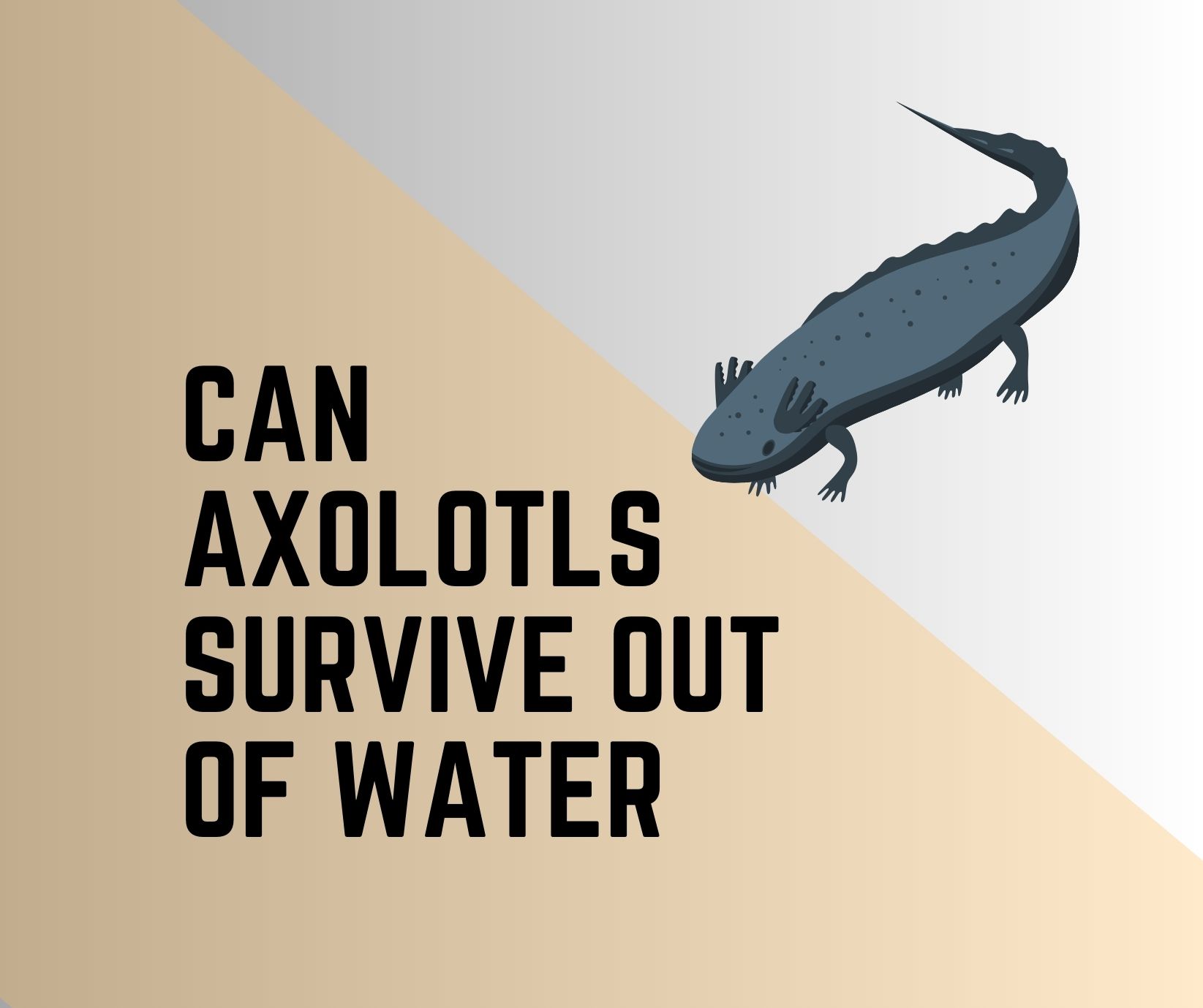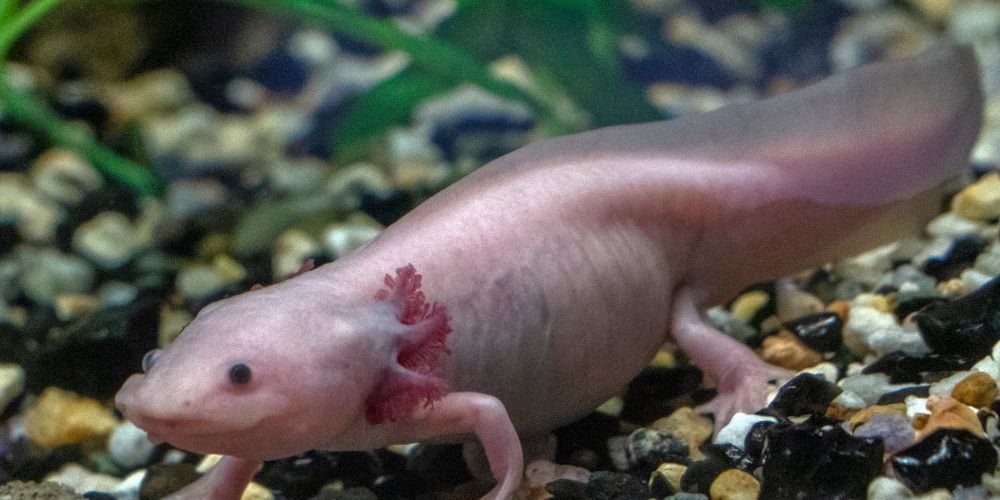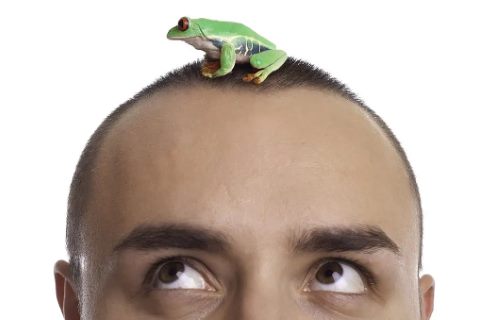
Axolotls are unique and interesting creatures, and everything about them is fascinating. These remarkable amphibians have the ability to regenerate their limbs and organs. They belong to the Salamander family and are native to the Xochimilco canals in Mexico City. Their gills enable them to breathe underwater, and that’s how they spend their entire life in rivers and canals. But is it possible for Axolotls to survive out of water?
Whether Axolotls can survive outside water or not is a question that has puzzled both scientists and enthusiasts alike. There isn’t a straightforward answer for the same, and one needs to dive into Axolotl’s physiology and behavior to know exactly.
Join us to learn why water is important for Axolotls to survive and whether they can make it up on land or not. Let’s explore.
Can Axolotls Live On Land?
Axolotls are aquatic animals, a type of salamander found in the canals of Mexico. These beloved amphibians are known for their cute looks, always smiling facts, unique appearance, and regenerative abilities. Though Axolotls are wild amphibians, they are also kept as pets due to their fascinating characteristics. While most amphibians grow up and get out of their aquatic phase, the same isn’t the case with Axolotls. These creatures are strictly aquatic animals who want water to survive.
Axolotls cannot live on land permanently but can tolerate brief periods out of water. Their highly permeable skin, when exposed to air for a long, makes Axolotls prone to dehydration and other health complications. Besides that, since they extract oxygen through their gills, they require water to breathe.
Keeping axolotls out of water is, although temporarily possible, isn’t recommended. It is important to provide these amphibians with a suitable aquatic environment that can ensure their health and well-being. Therefore, if you are an Axolotls keeper, do not remove your Axolotls from the tank for very long.

For How Long Can Axolotls Survive Outside Water?
Axolotls can survive outside of water for a short period, for no more than 50 to 60 minutes. However, generally, it is not recommended to keep Axolotls out of the water until and unless it is very necessary. And even when you are keeping them without water for a few minutes, ensure the area is moist and damp. Remember, Axolotls are adapted to living in water, and without moisture around, their skin can dry out quickly.
When you keep axolotls out of water for too long; they can also suffer from dehydration and a range of other health problems. If the situation goes worst, it can even lead to death. As a general rule, never keep Axolotls out of water for more than a few minutes. Even when you need to move an axolotl out of its tank, keep it in a shallow container or in a moist place.
Can Axolotls Breath Outside Water? How?
Axolotls are fully aquatic animals who breathe through their gills. They need their gills to extract oxygen from water, and that’s how their respiratory system work. Axolotls aren’t adapted to breathe air like other amphibians (frogs and toads) who can survive on both land and water. Therefore Axolotls cannot survive for long periods of time out of water.
However, Axolotls are unique, and they do have a primitive ability to extract oxygen from the air through their skin. This ability is called Cutaneous respiration. This primitive ability allows Axolotls to survive for a short span in water with low oxygen levels. During cutaneous respiration, oxygen from Axolotls air diffuses through the skin and gets into the bloodstream. Cutaneous respiration isn’t as efficient as gill respiration and thus allows the amphibians to survive only for a limited period.
However, it is important to note that Axolotls should always be kept in a fully aquatic environment containing clean, well-oxygenated water.
Drawbacks Of Keeping Axolotls Out Of Water
Axolotls are aquatic amphibians, and keeping them outside water for long can have several drawbacks. Some of them are here to mention:
- Axolotls breathe through their gills and extract oxygen from water. While you keep them out of water for too long it is possible for them to suffer from dehydration. If the situation gets worse, it can lead to health problems and even death.
- Keeping Axolotls out of water can make their skin easily dry out since they have delicate.
- Keeping Axolotls out of water can make them stressed, agitated, and anxious. It can further lead to health problems and even death.
- Axolotls are active animals, and they need water to stay healthy. Keeping Axolotls out of water enables them to swim and move around. It can also lead to muscle weakness and other health problems.
Therefore, Axolotl experts and vegetarians do not advise keeping axolotls out of water for long. Ensure keeping them in a fully aquatic environment and clean de-chlorinated water for their health and well-being.
Why Do Axolotls Need Water?
Axolotls are fully aquatic animals that need water for survival. Here are some of the popular reasons explaining why Axolotls need water:
- Axolotls need water for breathing. These amphibians breathe through their gills and extract oxygen from the water. In the absence of water, when Axolotls are kept on land, they are not able to extract oxygen and thus easily suffocate.
- Axolotls are cold-blooded amphibians, and water is important for their Thermoregulation. Water help Axolotls keep heat away from their body and prevent overheating.
- Water is important for keeping Axolotl’s skin moist and hydrated. These amphibians have very thin and delicate skin, and without absorbing water continuously, they can dry out and damage easily.
- Axolotls need water to swim, stay active and remain healthy. Water provides them the buoyancy to move across and helps to support their bodies.
Overall, water is essential for Axolotls’ survival and good health. These amphibians are adapted to an aquatic lifestyle. They have evolved several physiological mechanisms which further help them survive in an aquatic environment. That is why it is crucial to make sure that axolotls are kept in a fully clean, well-oxygenated aquatic environment.
Can axolotls adapt to living on land permanently, and how does it affect their development?
No, Axolotls are those aquatic animals who are not adapted for life on land. However, some of them can make it up on land, even if it is for a period of time.
When you force Axolotls to live on land, it can affect their development in several ways. Initially, they will start losing their gills, the body organ that helps them breathe underwater. They will develop lungs to breathe air, and this transition from gills to lungs can take several weeks. During the transitional phase, Axolotl becomes vulnerable to respiratory infections.
Besides that, Axolotl’s skin, when it adapts to living in a drier environment, becomes thicker and more protective. It can further change color and pattern since axolotls adapt to blending in with their surroundings.
And finally, when axolotls are forced to live on land, their behavior and feeding habits change as well. Axolotls may become highly active and would spend more time exploring their environment. They may likely develop a preference for different types of food.
It is important to learn that life on land is not well-suited for axolotls. Especially due to environmental uncertainties, it isn’t ideal for their long-term survival. Therefore when keeping an axolotl as a pet, make sure you provide them with a suitable aquatic habitat.
Wrapping up…
Overall, axolotls can survive temporarily out of the water but cannot permanently become land amphibians. They can adapt to living on land to a degree, but since it is not their natural habitat, this change will negatively affect their development.

Hi, I’m Mike, and I’m the creator of amphibianlife.com. If there was one word to describe it? It would be: passionate about Amphibians! Whether you want to know more about amphibians or have a presentation to give at school, you’ve come to the right place.
